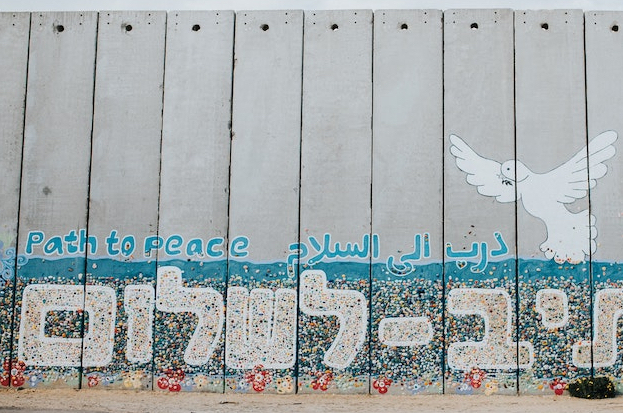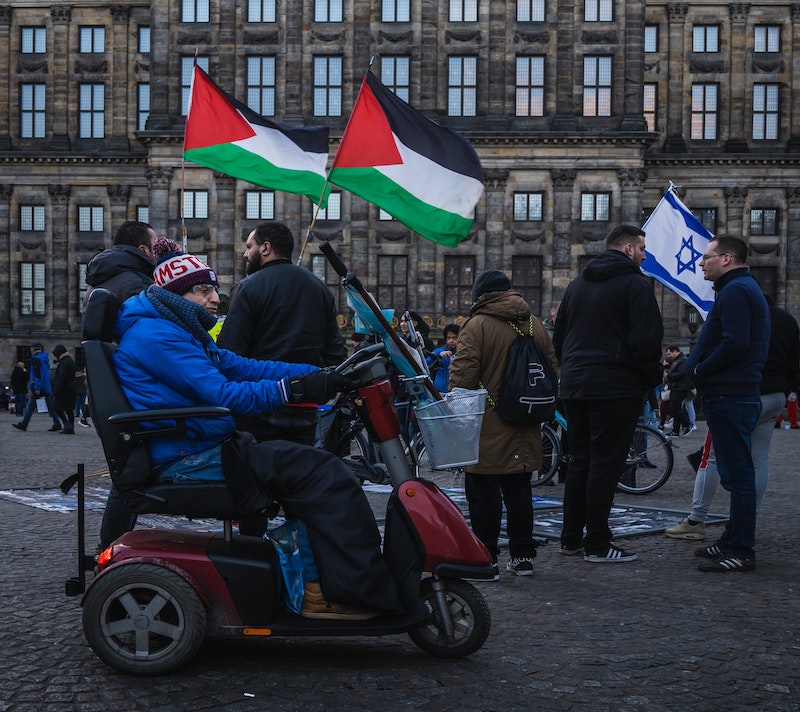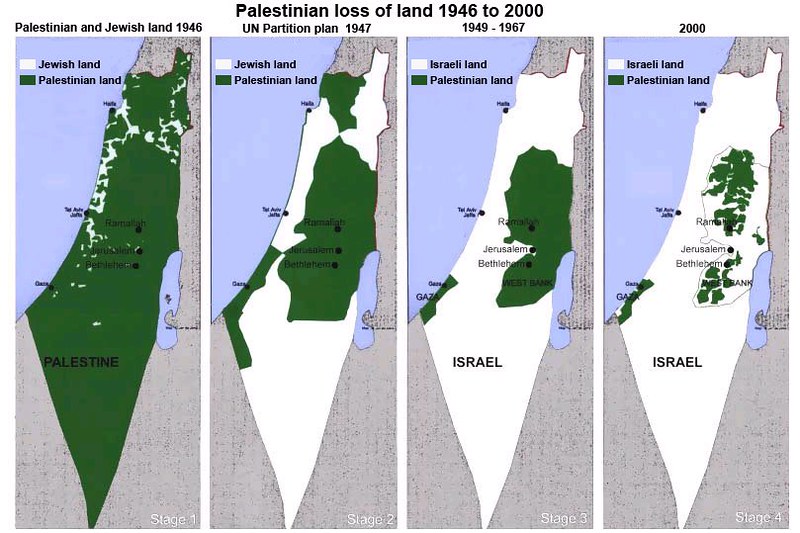Understanding Palestine and Israel Relations

I’ve always been conscious of the Palestine-Israel conflict. We see some of it in the news, but I never really understood the conflict's problem until recently. I met someone very passionate about this; he is Palestinian and explained what the conflict was about. Since he is Palestinian, I only had one point of view, so I knew I needed to do some research to be more aware and make up my own mind about this complicated subject. The more I read, the more interested I was. But it was also much more complicated to understand than I thought.
After I did some research of my own, I decided to write an article about it so that all the people who, like me are interested in knowing more, can know the basics about this long-lasting conflict.
So here's what I learned.
The first thing you need to know is that in 1947 the United Nations enacted what is called Resolution 181, which is also known as the Partition Plan. It sought to divide the British mandate of Palestine into Arab and Jewish States. It is important to clarify, that some people think that the main four barriers to peace are: the status of Jerusalem; the supposed self-governance of Palestine, which is barely being respected; the illegal Israeli settlements; and the Palestinian refugee's right to return.
On May 14th, 1948, the State of Israel was created. This is when things start going downhill. It sparked the Arab-Israeli, which saw five Arab nations invaded Israel, Israel after a year, won the conflict, which led to the displacing of 750,000 Palestinians. The territory was then divided into 3 parts, the State of Israel, the West Bank (of the Jordan River), and the Gaza Strip.
Image credit: Unsplash/Liam McGarryAfter that, there were heightened tensions between Israel and Egypt, Jordan, and Syria, all of which participated in the Arab-Israeli War of 1948-1949. In 1967, a six-day war broke out between Israel, Syria, and Egypt. During those years, with tensions rising before the war, due to neighboring countries worrying about the new Israeli situation. When the war ended, Israel gained territorial control over the Sinai Peninsula, the Gaza Strip, the West Bank, and Jerusalem. After some more rocky conflicts, in 1979, following a series of ceasefires and many rounds of negotiations, representatives from Egypt and Israel signed the Camp David Accords, a peace treaty that ended the thirty-year conflict between Israel and Egypt.
However, the problem of Palestine's self-governance and determination wasn't resolved. In 1987, hundreds of Palestinians living in the West Bank and Gaza Strip rose against the Israeli government, which caused the first intifada. An intifada is a rebellion or uprising, it is a key concept used in Arabic tradition referring to a legitimate uprising against oppression. There is controversy around this first intifada, some say that it wasn't as violent as those following it but acts of terror and attacks did still take place, while others say that the ratio of deaths of Israeli compared to Palestinians was 1 to 3.
The Oslo I Accords mediated the conflict in 1993. They set up an idea to govern themselves in the West Bank and Gaza and have their own authority, which wasn't respected in the end. In 1995, another accord mandated Israel to withdraw from six cities and 450 towns in the West Bank. However, the Israeli government did not respect the mandate.
Palestinians weren't happy about Israelis illegal settlements in their country and in 2000, they launched the second intifada, which lasted until 2005. During the second intifada, violence exploded within both Israel and Palestine. The Israeli responded by constructing a wall around the West bank in 2002, despite strong opposition from the International Court of Justice and the International Criminal Court.
Image credit: Creative Commons/Dale SpencerIn 2013, the United States tried to restore the peace between the Israeli government and the Palestinian Authority in the West Bank. But as always, some people didn't agree. In this case, it was Fatah-the Palestinian Authority's ruling party, which was formed as a rival party for the faction Hamas. The problem with this political party is it was classified as a terrorist organization by the United States after the 1997 intifada.
I know you might be a bit confused, but please, bear with me. It gets even more interesting.
There were many clashes in the following year in the Palestinian territories between the Israeli military and Hamas, in which Hamas fired 3,000 rockets on Israeli territory. Of course, this angered Israelis, so they responded with a very aggressive Gaza attack. This horrible conflict ended with a mediated deal which Egypt brokered, but not before the lives of 73 Israelis and 2,251 Palestinians were taken. Of course, tensions only rose and kept going. Again in May 2018, conflict broke out between Hamas and the Israeli military and it was the most violent period since 2014. After a total of 100 rockets were fired by Palestine and 50 targets in Gaza by Israel, the conflict cooled down.
Where's the United States in all of this you might ask since they are always involved.
Well, the Trump administration didn't help directly in the conflict. Although his administration made it a priority to achieve peace in this region, in 2018, the administration canceled funding for the UN Relief and Works Agency, which provided aid to Palestinian refugees. It also relocated the U.S. embassy from Tel Aviv to Jerusalem, which was not a welcome move towards Palestine. The United States also provides Israel with 3.8 billion dollars worth of military aid in 2019 as well as agreements on sharing information between the two. So he did help in some way, contributing to the conflict, even without the intervention of the United States military.
In 2020, the Trump administration released a Peace Prosperity plan, which Palestinians rejected because it supported Israeli annexation of settlements in the West Bank, which many considered illegal. It also supported Israel's control over an undivided Jerusalem, which was considered ludicrous by many.
This longstanding conflict has been going on for a long, long time, and the two parties have not been able to come to an accord. They both hold solid points because they've both been there for a while. However, the conflict's temperature is still rising, and people say there might be an intifada soon.
I know this is all confusing, and I hope my attempt in making it more digestible for you was successful, but here's a video for you to become a bit of an expert on the topic since the conflict is rarely discussed in the news.
*This article was unpublished on April 21, 2021 to correct inaccurate statistics. It was republished on May 5, 2021.








